Publications
My Publications
Filter by type:
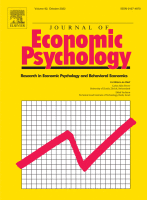
The economic crisis during the COVID-19 pandemic has a negative effect on tax compliance: Results from a scenario study in Austria
In a scenario study with 1200 Austrian taxpayers, we examined how tax compliance is affected by the economic crisis related to the COVID-19 pandemic. Moreover, we investigated the potential of
trust in government, attitude towards taxes, and justice perceptions in mitigating potential effects. The results suggest a strong effect of the economic environment on tax compliance. Specifically, tax compliance was lower in scenarios where the pandemic had a negative effect on the economy than in scenarios with no negative effect. However, for individuals with a positive attitude towards taxes, compliance was not lower in a negative economic environment than in pre-COVID-19 times. Moreover, we found that taxpayers who were not affected economically, taxpayers with a positive attitude towards taxes, and taxpayers with a low propensity to take risks generally indicated higher levels of tax compliance. Exploratory analyses indicate that taxpayers who change their compliance behavior in response to the economic environment are, on average, younger, less educated, more strongly affected economically, and more uncertain about their current economic situation than taxpayers with stable compliance levels. Policy interventions should target these groups to strengthen tax compliance in times of crisis.
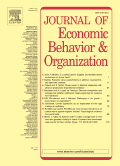
Information defaults in repeated public good provision
We study an unexplored type of defaults – information defaults – in a repeated public good provision setting. In our treatments, we vary the default of having or not having contribution information as well as whether the information comes with a positive, zero or negative financial incentive. We find that almost all subjects have the information when this is cost-free or financially beneficial, but around a third have the information even when this is costly. Moreover, a default of not having information leads to a slower unraveling of cooperation which is matched by the beliefs about others’ contributions in these treatments. We also find a secondary informational default effect, challenging previous findings on how defaults work: when the default is no information, subjects do not seek information more often, but they tend to believe that more other subjects seek information.
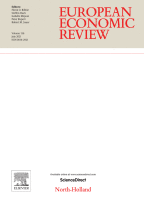
Disincentives from redistribution: evidence on a dividend of democracy

Time Pressure and Focal Points in Coordination Games: Experimental Evidence - Online Appendix
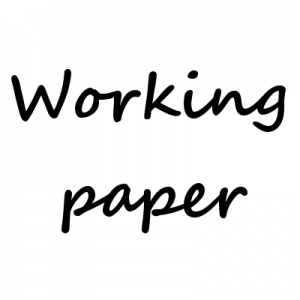
Time Pressure and Focal Points in Coordination Games: Experimental Evidence
How does time pressure affect the power of focal points in coordination games? We experimentally examine the effects of varying time pressure in a coordination game with a label-salient focal equilibrium. We consider both a payoff symmetric (pure) coordination game and a payoff asymmetric battle of the sexes coordination game with conflict of interest. The data show that in the symmetric game the label-salient outcome is highly focal regardless of how much time subjects have to decide. In the asymmetric game, in contrast, higher time pressure makes it significantly more likely that coordination is on the label-salient outcome. Our findings suggest that the results from the existing literature on focal points in coordination games with conflict of interest, which did not control for explicit time constraints, may underestimate the power of focal points when decision makers are time-constrained.
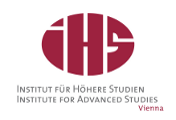
Empowering consumers to reduce corporate tax avoidance: Theory and Experiments
We analyze corporate tax avoidance in a theoretical model and in a stylized experimental Bertrand setting in which symmetric firms and consumers sell and buy a homogeneous product, when human participants make decisions as firms and consumers. We investigate how market power and information disclosure of firms’ tax avoidance behavior impacts corporate tax avoidance and market competition. By imposing a tax rating, corporate tax behavior becomes more transparent, and consumers actively and costly boycott firms that do not pay their taxes. Firms adapt and anticipate consumer boycotts and increase tax payments, and prices. When rating disclosure is voluntary, the positive effect on corporate tax compliance vanishes in large markets.

Personal accountability and cooperation in teams
In a real effort lab and online team production experiment, we analyze exerted effort under different conditions of individual accountability. In a repeated setting, we vary the degree to which production can be directly traced back to a collaborator’s individual or randomly drawn effort level, respectively. We find that individuals produce much less and the decline of effort over time is significantly steeper under high as compared to low and endogenously chosen personal accountability. While endogenous accountability provides an option for monitoring others, it does not force subjects to learn about their under-performing peers, thus limiting the typical decline of contributions over time. We conclude that accountability one step removed may be an interesting institutional setting for repeated collaborations in contexts where low accountability for political, social or legal reasons is not a viable option.

Information defaults in repeated public good provision
We present an experiment that models a repeated public good provision setting where the policy maker or manager does not have perfect control over information flows. Rather, information seeking can be affected by changing the information default as well as the price of information. The default is one either with or without information about others’ contributions, and having information comes with a positive, zero or negative financial incentive. When information comes without a financial incentive or even is financially beneficial, almost all subjects choose to have the information, but around a third have the information even when this is costly. Moreover, a default of not having information about the others’ contributions leads to a slower unravelling of cooperation, independent of the financial incentives of having information. This slower unravelling is explained by the beliefs about others’ contributions in these treatments. A secondary informational default effect appears to take place. When the default is no information, subjects do not seek information more often but, conditional on financial incentives, they tend to believe that more other subjects seek information.

Framed payslips and people's reactions to labor tax changes
Payslips are supposed to notify employees about wage-related information, enabling them to adjust their labor supply, when appropriate. However, payslips are often information-laden and complex to understand, casting doubt on whether they are adequately up to the task, potentially resulting in inefficient labor supply reactions. In a real-effort laboratory experiment we use a variety of information frames to potentially support a better understanding of wage related information. We find that participants strongly react to changes of incidental wage costs, yet the framing of payslips has no additional effect on people’s labor supply. Nevertheless, including simple graphics increases comprehension and readability.
